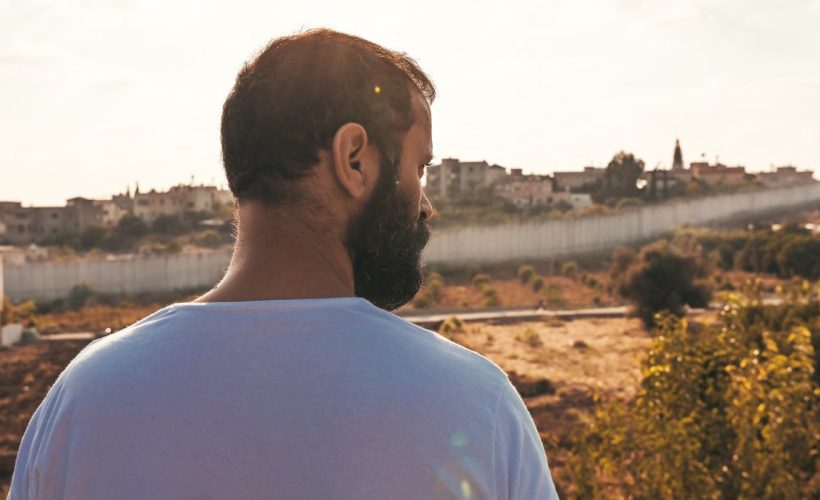Society
3.5.2020
Fallujah, Feurat Alani’s lost campaign

After the success of Parfum d’Irak, Feurat Alani comes back to tell us the memories of his homeland with Falloujah, ma campagne perdue: a graphic novel published by Les Escales, which pays tribute to his parents’ city and plunges us into the disastrous consequences of the American invasion of Iraq.
The year 2019 was emotionally rich for Feurat Alani. Last October, he was awarded the prestigious Albert Londres prize in the book category for Parfum d’Irak. A comic strip, halfway between the diary and the journalistic work, which told his childhood memories in his parents’ country. Today, he dedicates “Falloujah, ma campagne perdue” to his deceased father in a poignant tribute to his city, once modern and flourishing. A wounded paradise that has lost its greenery and seen its municipal stadium transformed into a cemetery. But also the testimony of an unfair destruction in the midst of which the author manages, against all odds, to hold back the life-breath of its inhabitants.
This comic book is inspired by a journalistic investigation you conducted in 2011 after the appearance of cancers and congenital deformities among American veterans of the Iraq war and Iraqi civilian families. Can you remind us of the context of this investigation?
At the time, I was a correspondent in Baghdad, where I had settled in late 2003. I used to go to Fallujah a lot and I was told a lot about cancers, deformed babies, but these stories seemed so incredible that I couldn’t believe them. A few months later, I have been brought back some pictures and I could see with my own eyes that it was real. This was about 5 years after the two great battles of Fallujah, which opposed Iraqi insurgents and the American and Iraqi armies. The city had been destroyed by toxic weapons and many of its inhabitants were beginning to show symptoms of diseases, there were also many births of children with congenital malformations. If the link seemed obvious to me, it had to be investigated because it was a very political and taboo subject. Moreover, the Americans had completely surrounded the city, and it was impossible to enter.

What struck you the most about these victims?
What struck me with the people I met was the distress and despair in people’s eyes. In Fallujah, families with no medical history found themselves, almost overnight, with health problems, babies deformed or dying only after a few days. Disability is a taboo topic in the Arab world, especially in Iraq, for people who consider it a shame. So I was marked by those families who agreed to meet me and take up the challenge of showing this taboo of Iraqi society. Then, to see that thousands of miles away, in the United States, the very actors of the war had also been affected in the same way, it reinforced me in the idea that this investigation was necessary.
The book ends on a rather dark note with the rise of extremist groups in the city. In view of the demonstrations that took place last October in Iraq, are you optimistic about the future of the country?
Yes, I am optimistic, especially when I see the youth rising up spontaneously in a non-sectarian way, claiming only its Iraqi identity and nothing else. In Fallujah, young people demonstrated as early as 2012, long before the Shiite demonstrations that took place in Baghdad, but unfortunately they were repressed by the regime of Nouri Maliki at the time. Now they don’t dare to move because they remember the violence and the many deaths that they had to face. In this book, I wanted to tell the story of a lost Iraq but also the story of a country’s destruction by its strongest symbol, Fallujah, a symbolic city that was once resisting against the United States.

What is the main challenge of Iraq today?
Iraq’s major challenge is to be autonomous, independent and free of all foreign influence, especially that of Iran and the United States. Since the departure of the American troops in 2011, Iran has become even more established in all layers of Iraki society, either economically, socially or politically. This is a real problem and the reason why young people are demonstrating today. But fighting corruption and renewing the entire Iraqi political system is also one of them.
popular

